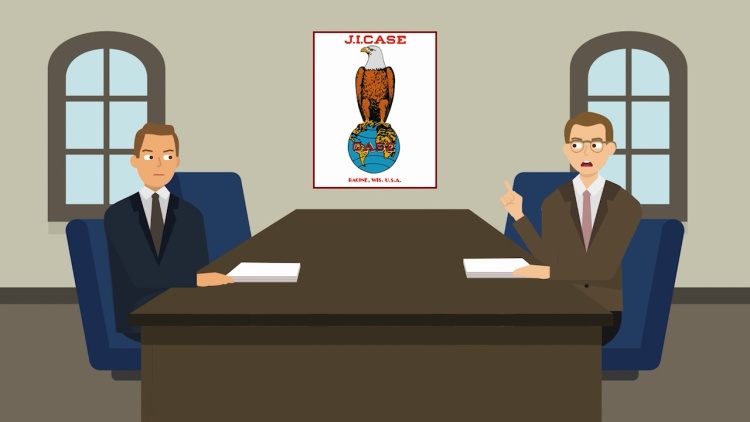J.I. Case Co. v. National Labor Relations Board
United States Supreme Court
321 U.S. 332 (1944)
- Written by Rose VanHofwegen, JD
Facts
J.I. Case Co. (defendant) offered its workers individual one-year employment contracts with uniform terms. About 75 percent of the employees accepted the contract. While the contracts for 1941 were still effective, a union petitioned the National Labor Relations Board (plaintiff) for recognition as exclusive bargaining representative for the plant’s production and maintenance workers. The company objected, insisting that the individual employment contracts precluded representation. The board nonetheless ordered an election, the union won, and the board certified it to represent the plant workers. However, the company still refused to bargain with the union about anything the individual contracts covered. The company offered to negotiate only noncovered terms and said it would bargain as to everything else only when the 1941 contracts expired. In addition, the company sent out two circulars to its employees, asserting that the contracts remained valid and explaining its position with the union. The board found that the company refused to bargain collectively and used the contracts to impede employees’ rights, which amounted to unfair labor practices. As a result, the board ordered the company to stop enforcing the contracts to avoid bargaining with the union.
Rule of Law
Issue
Holding and Reasoning (Jackson, J.)
What to do next…
Here's why 904,000 law students have relied on our case briefs:
- Written by law professors and practitioners, not other law students. 47,100 briefs, keyed to 995 casebooks. Top-notch customer support.
- The right amount of information, includes the facts, issues, rule of law, holding and reasoning, and any concurrences and dissents.
- Access in your classes, works on your mobile and tablet. Massive library of related video lessons and high quality multiple-choice questions.
- Easy to use, uniform format for every case brief. Written in plain English, not in legalese. Our briefs summarize and simplify; they don’t just repeat the court’s language.





